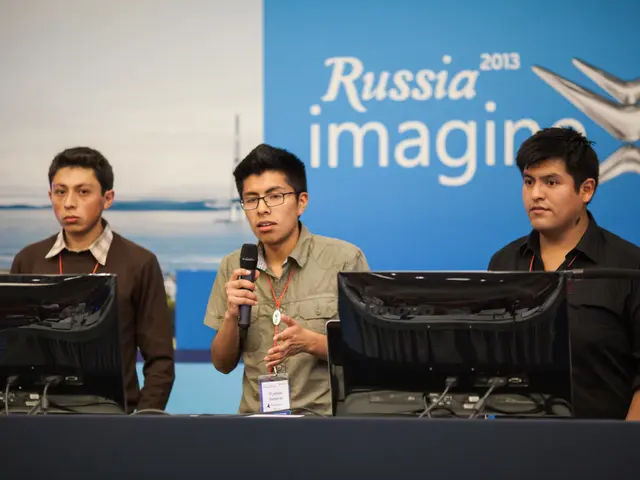GM Navigates Tariff Headwinds to Aim for Top Position in Electric Vehicle Sales
The US electric vehicle (EV) market is dominated by a majority-male, wealthy clientele, but that could change with General Motors (GM) importing low-cost Lithium Iron Phosphate (LFP) batteries from CATL. This strategic move will enable GM to offer a more affordable electric vehicle in the short term while building its domestic supply chain for the longer term.
GM plans to import CATL’s LFP batteries temporarily—primarily to power the upcoming next-generation Chevrolet Bolt, their most affordable EV model expected around 2026—until it establishes LFP battery production in the US by 2027 with LG Energy Solution. This decision allows GM to reduce costs compared to traditional, more expensive lithium-ion batteries containing nickel and cobalt, helping GM maintain a competitive price point near $30,000 for the Bolt EV, which should boost accessibility and sales in the price-sensitive US market.
Despite high tariffs on imported Chinese batteries imposed during the previous US administration, the elimination of federal subsidies for vehicles with foreign-made batteries means GM’s approach does not necessarily suffer a price disadvantage compared to fully US-produced battery EVs. Thus, GM can strategically balance cost, supply chain constraints, and pricing competitiveness in the evolving US EV landscape.
This import strategy also addresses safety and quality concerns stemming from earlier Bolt EV battery issues. GM and partners, including LG Energy Solution, have committed to robust safety measures while relying on CATL’s mature LFP tech, which is generally considered safer and less prone to thermal runaway than traditional lithium-ion chemistries.
In addition to the Bolt, GM sells 12 EVs in the US with domestically-produced battery cells. The company aims to scale production of LFP batteries in the US to complement its high-nickel and future lithium manganese rich solutions. The upgrade at Spring Hill will diversify GM’s growing EV portfolio.
GM’s Vice President of batteries, propulsion, and sustainability, Kurt Kelty, stated that the transition at Spring Hill will enable the production of lower-cost LFP cell technologies in the US. The re-launch of the Chevy Bolt with updates to the front fascia, rear tail lamps, and a NACS charging adapter port is expected to happen after the July 29 teaser.
Meanwhile, charging-as-a-service business models are emerging to address the needs of EV buyers living in multi-household properties without charging stations. Drop-in charging stations are becoming available to support fast charging technology in areas with a wobbly infrastructure.
As Tesla continues to shatter its own sales records, other automakers, including GM, have an opportunity to fill the gap in EV sales. GM is aiming to surpass Tesla and become the top EV seller in the US. The impact of GM importing low-cost LFP batteries from CATL on the future of EV sales in the US market is significant and will likely strengthen GM’s position in the affordable EV segment and contribute positively to EV sales growth in the near to medium term.
[1] https://www.greencarreports.com/news/1130893_general-motors-to-import-lithium-iron-phosphate-batteries-for-future-chevrolet-bolt-ev [2] https://www.greencarreports.com/news/1130928_general-motors-to-import-lithium-iron-phosphate-batteries-for-future-chevrolet-bolt-ev [3] https://www.greencarreports.com/news/1130928_general-motors-to-import-lithium-iron-phosphate-batteries-for-future-chevrolet-bolt-ev [4] https://www.greencarreports.com/news/1130893_general-motors-to-import-lithium-iron-phosphate-batteries-for-future-chevrolet-bolt-ev [5] https://www.greencarreports.com/news/1130928_general-motors-to-import-lithium-iron-phosphate-batteries-for-future-chevrolet-bolt-ev
- General Motors (GM) plans to import Lithium Iron Phosphate (LFP) batteries from CATL temporarily for the upcoming next-generation Chevrolet Bolt, aiming to reduce costs and make electric vehicles more accessible in the price-sensitive US market.
- GM's Vice President of batteries, propulsion, and sustainability, Kurt Kelty, stated that the transition at Spring Hill will enable the production of lower-cost LFP cell technologies in the US, ultimately bringing down the price point of the Bolt EV to compete with traditional internal combustion engine vehicles.
- With the strategic move to import LFP batteries, GM can balance cost, supply chain constraints, and pricing competitiveness in the evolving US electric vehicle (EV) market, potentially surpassing Tesla and becoming the top EV seller in the US.
- In addition to cost considerations, the use of LFP batteries addresses safety and quality concerns stemming from earlier Bolt EV battery issues, as they are generally considered safer and less prone to thermal runaway than traditional lithium-ion chemistries.
- GM is focusing on scaling production of LFP batteries in the US to complement its high-nickel and future lithium manganese rich solutions, aiming to diversify its growing EV portfolio and maintain a competitive edge in the industry.
- As the US EV market continues to grow, charging-as-a-service business models are emerging to address the needs of EV buyers living in multi-household properties without charging stations, making charging infrastructure more accessible and convenient for everyone.
- continually evolving business models and advancements in battery technology, electric vehicles are becoming increasingly integrated into various aspects of our lifestyle, from transportation to finance and tech-focused industries, steering the future towards a more sustainable and energy-efficient society.



